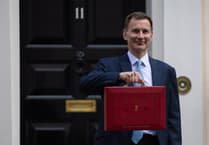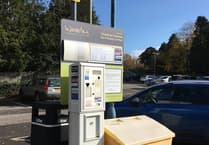THIS morning I woke up to be greeted by an email from a Godalming business owner who has just been turned down for a coronavirus loan by his bank despite having his most profitable month ever just before the crisis.
They employ 17 people in Godalming, all of whose jobs are now at risk.
I will write to the chancellor about his case – as I have done for many others – but it makes all the more relevant my theme for this week’s Herald article which is how we exit the lockdown.
In South West Surrey, where we have large numbers of hospitality and tourism businesses, this could not be more critical. They are desperate to exit their own version of life support.
There has been lots of discussion about the need to ‘test, test, test’ but a test is not a cure.
The reason why the countries with the lowest death rates have generally been the biggest testers is because of what testing makes possible: quarantining of people with the virus, tracking down who they have been near and if necessary isolating them as well.
Do this on a massive scale and you can keep open shops, offices and restaurants – as has happened in Korea, Taiwan and Hong Kong – with much less damage to the economy than European or American-style mass lockdowns.
That is the key to keeping Covid deaths low – Korea has never had more than nine deaths on any one day, Singapore and Hong Kong have had fewer than a dozen deaths each and Vietnam is reporting no deaths at all.
But it is also the key to getting the economy going. Instead of locking down the whole economy, you make sure you can quarantine people – and those they have been near – very fast indeed.
Technology is a key part of the solution. In Taiwan people who have been quarantined at home are asked to download an app on their phones which alerts the authorities if they break the quarantine rules.
If that sounds intrusive, it is – but by doing this, Taiwan has been able to allow everyone else to carry on going to work as normal, albeit with temperature checks taken at the entrance to many office blocks.
In Singapore, a widely-praised app called TraceTogether allows the authorities to trace every mobile phone you have been near if you develop Covid. It is highly effective although only one fifth of the population in this highly tech-savvy city state has downloaded it.
International best practice suggests you need a combination of technology and manpower – an army of contact tracers who phone or even meet Covid patients (suitably protected) to find out who they have been near and then arrange for them too to be quarantined and tested.
This is a huge task but one for which local government is very well suited.
Across the country we employ 5,000 environmental audit officers who are already trained to do a different form of contact tracing.
We need to get cracking on this. In just two weeks the Cabinet will make a decision on whether to lift the lockdown.
This is the only internationally-proven alternative which would protect us from a second or third wave of the virus – so we must make sure it is a credible option.
That is why I think we should appoint someone from outside national politics to make it happen – Andy Street, the mayor of the West Midlands, who used to run John Lewis, would be one very strong candidate.
Let’s make this happen so the future of that business in Godalming does not depend on any bank loan, but through being able to get back on its feet.
* By Jeremy Hunt, MP for South West Surrey



